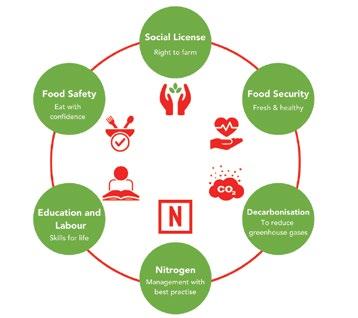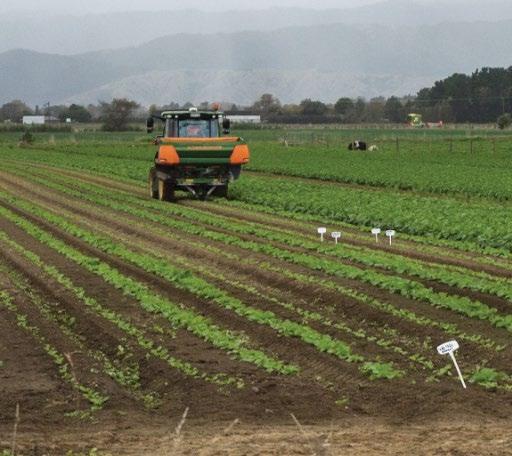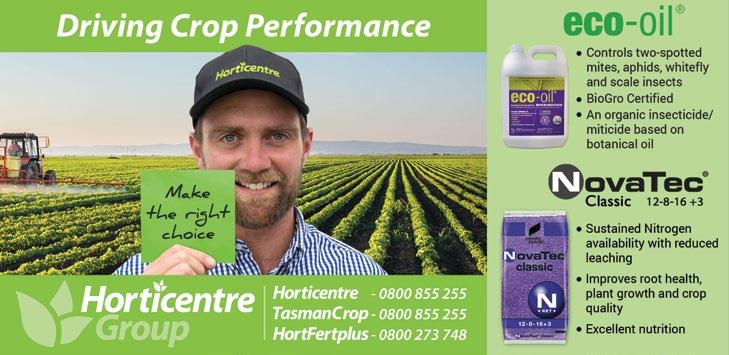
3 minute read
Vegetables NZ Inc
HOW WILL WE ATTRACT WORKERS
WHO UNDERSTAND VEGETABLE GROWING?
Antony Heywood : Vegetables New Zealand Inc. general manager
Food Safety
Eat with confidence
Social Licence
Right to farm
Food & Security Fresh & healthy
Education and Labour Skills for life

Nitrogen
Management with best practice
Decarbonisation
To reduce greenhouse gases
VNZI manifesto – spotlight on education and labour
Labour is going to be critically short in 2022. It is estimated that 45,000 workers will be required to cover horticulture‘s labour needs during peak harvest in March and April 2022, but only about 21,000 workers will be available, or less than half of what is needed.
What will this mean for vegetable growers?
Fruit product groups are actively recruiting via coordinated programmes. Vegetable growers need to think about similar programmes because without them, workers will pass us by on their way to fruit, arable or dairy employment options. The ball is in our court.
Emma Boase, who was up until recently HortNZ people capability manager, says: “Employers need a day-to-day focus on building positive workplaces for each and all employees. We can continue competing between ourselves and with other sectors for quantity and quality of people but real, sustained results will only come from collaboratively building our workforce in partnership with the education system. If we do this, and invest a little bit often in our own people, we will find that workers will choose horticulture, they will stay, and they will encourage their community to choose it too.
“Our production capability will always be determined by our people capability.”

Vegetables New Zealand (VNZI) is developing a vegetable-centric Workforce Transition Plan, building on what VNZI has already got in play in the people capability area:
1 Vegetables.co.nz – the Food Skills for Life programme, teaching Year 7 and 8 students how to cook with vegetables. 2 Regional Career Progression Managers network – a regionally based labour and education service to guide and support students and employees into the horticulture industry 3 The Food & Fibre Centre of Vocational Excellence (CoVE) –previously known as Primary Industry
Training Organisation or ITO – tertiary education experiences and training throughout the country. 4 Other events like Fieldays and the Young Grower of the Year.
These activities deliver a steady flow of New Zealand employees to the vegetable industry, but it is not enough. Immigration, including working holiday schemes, need to continue to be part of the solution, notwithstanding the border restrictions due to Covid-19. Indeed, the Productivity Commission has released a report on immigration which concludes that it has a net positive impact on the New Zealand labour market.
Bold plan
VNZI has a bold plan to attract people into the vegetable sector. It highlights the need for co-ordination within the sector and between stakeholders. More importantly, the plan connects to the growers on the ground via District Associations.
VNZI will be visiting the regions in 2022 to understand grower needs for labour and education, and align our resource allocation with the issues that need addressing. Dates are as follows:
Pukekohe Northland Canterbury Southland /Otago
March 2022 April 2022 August 2022 September 2022
If growers would like VNZI to visit their region to discuss labour and employment needs, please email me at antony.heywood@hortnz.co.nz











